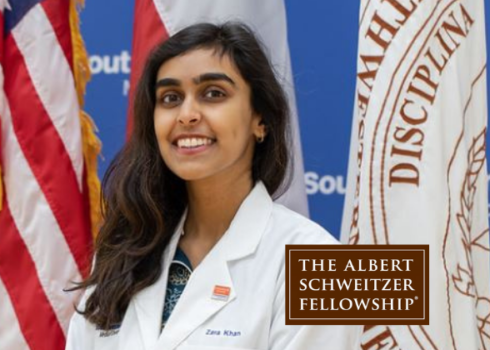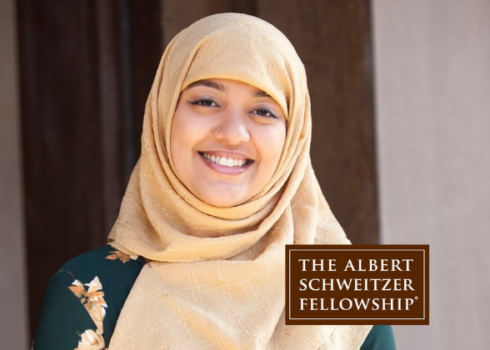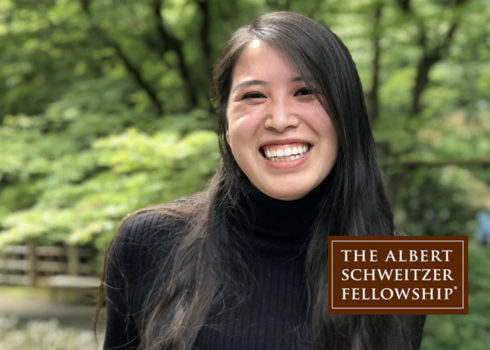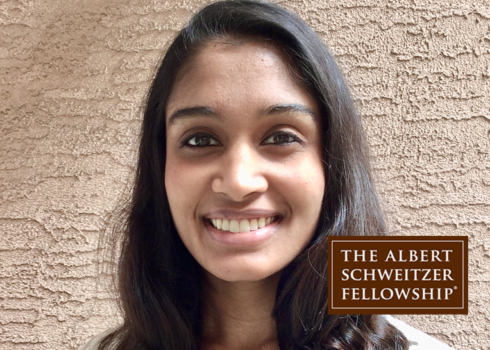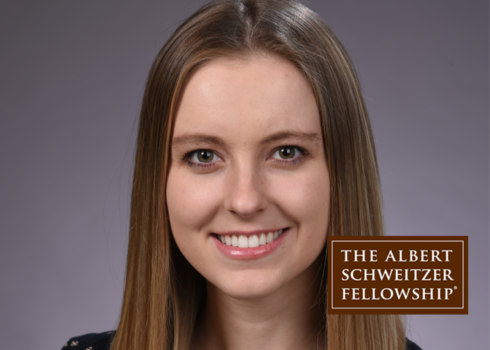Our collective mission to advance the health of the public has been fundamental to the advancement and prosperity of families in our region. In 2015, Southwestern Medical Foundation joined with the Dallas-Fort Worth Schweitzer Fellowship Program (ASF) to bring the innovative service and leadership program to medical and graduate students in the Dallas-Fort Worth area. 2021 Albert Schweitzer Fellow, Samantha Redid is driven to make a difference in her community by supporting healthy child development.
The Albert Schweitzer Fellowship aims to address local health disparities and the social determinants of health while developing future leaders. It was coined as a nod to the renowned physician-humanitarian and health care hero, Dr. Albert Schweitzer, who continues to inspire the legacy of community service through health care.
We had the opportunity to discuss the inspiring work of some of this year’s DFW Albert Schweitzer Fellows, who continue the spirit of Dr. Albert Schweitzer by investing in our region’s health.
An Interview with Samantha Redig: Supporting Healthy Child Development
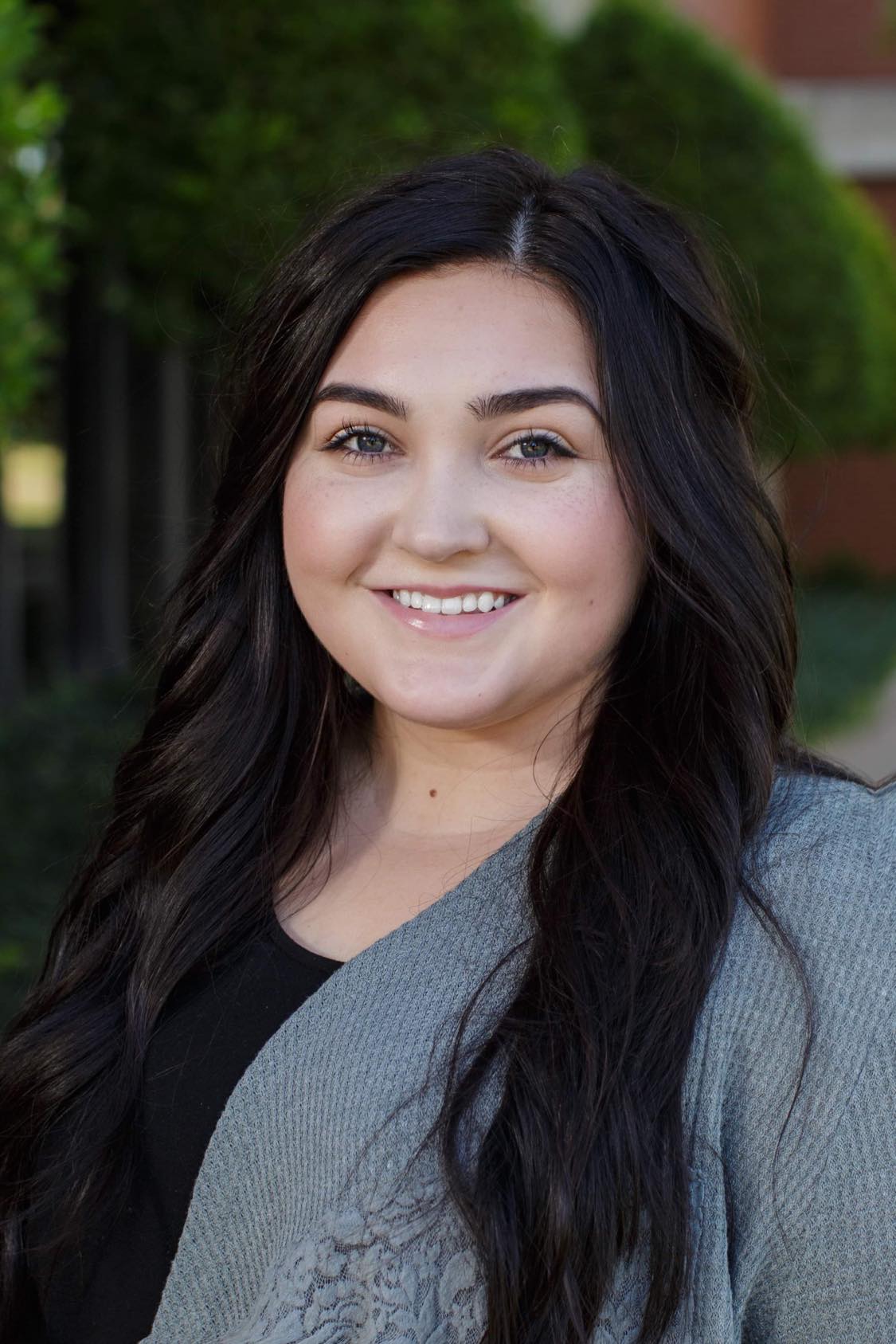
Q: Can you tell us a little bit about your background and what has led up to this moment in your career?
A: My name is Samantha Redig and I am a doctoral student at the University of Texas at Dallas studying developmental psychology in the department of Behavioral and Brain Sciences. Working under the advisement of Dr. Margaret T. Owen in the Children and Families lab, I study parenting and parent-child relationships within a cultural and socioeconomic context.
I am passionate about translating research into practice, especially within the communities we conduct our work in. I believe in making science accessible and approachable to our Dallas-Fort Worth families and their children. I am the first in my family to pursue a graduate education, and one of few to have received an undergraduate degree. I found a passion for learning, and I knew that I wanted to pursue education and research to do my part in making the world a better place.
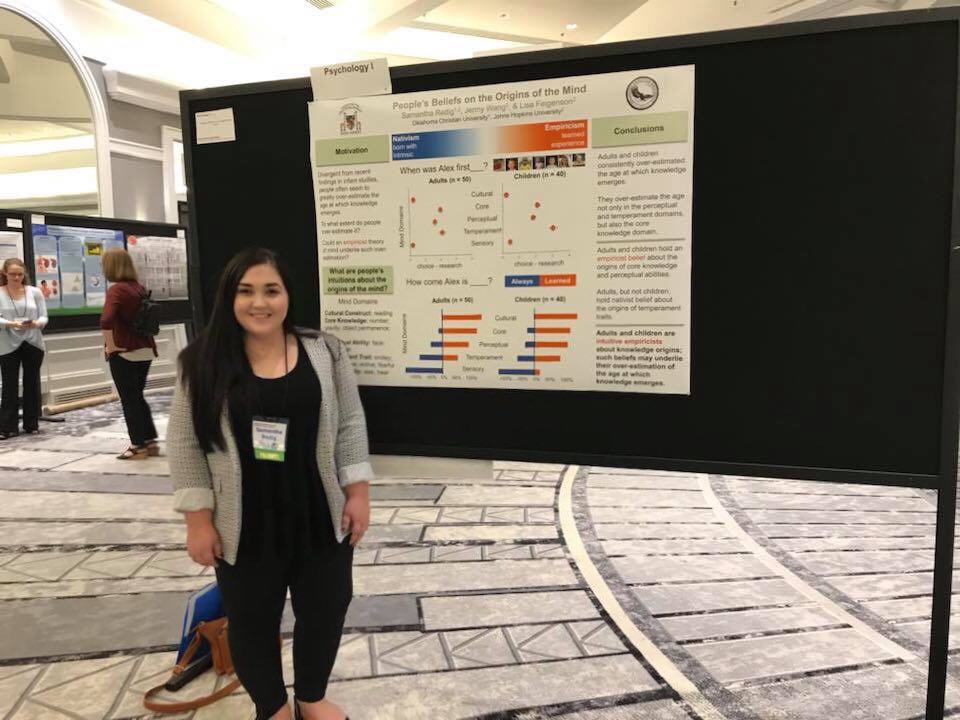
Q: How will your project support healthy child development?
Working with the The Center for Children and Families at Dallas, the Healthy Connections project will address the unique challenges facing Dallas-area parents and their infants through a 12-week program that focuses on increasing caregivers’ well-being, social support, and parenting skills to lay a strong foundation for healthy child development. By building on the Center for Children and Families’ existing program curriculum for Play With Me (Juega Conmigo), a free 10-12 week program that encourages positive parent-child relationships through semi-structured playtimes, we will be able to help address specific topics related to raising an infant while juggling other life stressors such as employment and income, social responsibilities, language barriers, access to resources, and general health concerns.
Under the advisement of Drs. Meghan R. Swanson and Margaret T. Owen of the University of Texas at Dallas, an iterative approach to program development will be used, starting with focus groups and conversations with local parents to learn about the challenges that families faced during the first year of raising an infant. Healthy Connections will then aim to reach these needs through a 12-week series that brings together DFW-area parents and their infants for a time of connection, support, and infant development education.
Q: What does being an Albert Schweitzer Fellow mean to you?
A: When I learned of the Albert Schweitzer Fellowship, I knew I had to apply. It is a phenomenal program that encourages graduate students to do more for the health of their cities. With a community of Fellows for Life to lean on, and the program leaders’ knowledge and know-how, we are really being set up for success and to learn a lot. By being a Schweitzer Fellow, it means I am a leader, a learner, and a lender. We are challenged to come up with and lead our own projects that will benefit our community, but all the while we are learning from each other and those that we are working with.
As a student in higher education, I am privileged to have access to education and innovative research, and by being a Fellow I can lend this information to my community.
Samantha Redig
Q: What role do you think philanthropy plays in supporting research and innovation?
A: Growing up, my knowledge of science, research, and higher education was extremely limited—I had no idea the breadth and impact psychological research can make on our lives and society. Now working as a developmental researcher, I know the importance of early intervention and how beneficial it is for parents and caregivers to feel supported and have access to evidence-based education. Research has shown that intervening early in life can have profound impacts on long-term child development. By supporting optimal development, we are setting the foundation for a stronger, happier, and more equitable society. If philanthropy is not in heart of our research and innovation, it is merely a self-serving endeavor.
As a society, we flourish when we collaborate and learn from one another; when we support and challenge each other. When philanthropy and research are combined, it strengthens both science and our society.
Samantha Redig
The Legacy of the Albert Schweitzer Fellowship
The philosophy that ASF champions aligns with the principles the Foundation has represented since its founding. Both ASF and the Foundation were established during World War II to develop leaders in service and inspire great citizenship through philanthropy. ASF was founded by Helene Bresslau Schweitzer and Albert Schweitzer in 1940. During the same time period, Southwestern Medical Foundation instituted the Ho Din Award.
Through the Ho Din Award, the highest honor bestowed on a graduating medical student from UT Southwestern, the Foundation has supported students who exemplify knowledge, understanding, and compassion. The Fellowship Program personifies these values, instilling a life-long philosophy of compassionate patient care, and paving the way for better health for all.
The Fellowship is open to students in eight local universities, including Baylor University, Southern Methodist University, Texas Christian University, Texas Woman’s University, University of Dallas, University of Texas at Arlington, University of Texas at Dallas, and UT Southwestern Medical Center.
Learn more about the Foundation’s partnership with the Albert Schweitzer Fellowship
